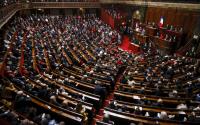11 October 2002The Guardian
The journey that Harriet Pringle, the heroine of Olivia Manning's Fortunes of War novels, makes in late 1942 from Alexandria to Damascus is a bumpy ride in an ammunition lorry through a region whose inhabitants are awaiting their fate - and the end of a conflict that it is becoming clear the allies will win - with a mixture of excitement and trepidation. The Egyptians, whom the British call "the Gyppos", are discussing all kinds of "hazy ideas" while, in Syria, Harriet encounters what her Arab friend calls "advanced circles". At a party Harriet notes how pleased her host is that Muslims, Jews and Christians mingle, self-consciously but proudly, as they discuss the future together. Every night is broken by rifle and pistol fire as demonstrators against the Free French come out into the streets.
Tentative sympathy but also mutual incomprehension mark Harriet's cautious relationship with the young Arab Christian who shows her around the Syrian capital. Manning was too clear-eyed a chronicler to suggest that the life of the Europeans caught up in the swirl of war in the Middle East touched in more than a superficial way on that of even educated Arabs. Uncertain relations between individuals reflected conflicting national purposes. The Europeans had their purposes and the Arabs had theirs and they were not often the same. At the end of the war waged by the Europeans, "peace, precarious peace, came down upon the world and the survivors could go home". For the Arabs, however, conflict continued, and the familiar, necessary and sometimes demeaning task of constantly weighing western policies to see what combination of opportunities and dangers they might represent, went on after the war just as it had done during and before it.
There are connections between the situation 60 years ago, at the time of the battle of El Alamein, and the situation today, as a western war machine seems about to return to the region.
The second world war was also, in minor key, a war against Arabs and Muslims, notably rebellious Iraqis and obstinate Iranians. Above all there remains the psychological legacy of western intervention in the Middle East, the sense that western purposes are never as announced, western promises are rarely kept, and western interest in Arab progress or democratic development is usually feigned. That is why even secular Arabs are so dubious about another western attempt to re-order their region.
The first such settlement, of which all succeeding ones have been modifications, was in the aftermath of the first world war. It was, as is well known, profoundly disappointing for most of the peoples of the Middle East. The second big set of western decisions, in the years after 1945, were equally flawed from their point of view. Now it is possible that in retrospect the first war against Iraq in 1991 will be seen as marking the beginning of a third major revision of the "settlement" of the Middle East.
The direction at first, under Clinton, was the combination of containment of Iraq and Iran and pursuit of the Oslo peace process; but now, under Bush, it has hardened and changed and could become - if an Iraq war is successful and if some members of the Bush administration get their way - even more ambitious.
The Bush administration has recently begun stressing the need for democratic transformation in the Middle East and arguing that the liberation of Iraq from Saddam Hussein would be a catalyst for such change. It may seem disingenuous of the same Arabs who complain that the west has supported corrupt and undemocratic rule in their countries to bridle at such a project, but it is understandable.
Arabs are pulled this way and that by the contradictory impulses that arise when outside intervention has been the standard for too long. On the one hand they fear sustained intervention, on the other they fear an intervention that is not sustained. But those Arabs who would most like to see a democratic transition in the Middle East know how difficult it is to create the necessary preconditions for democracy in societies under demographic, economic and environmental stress. Most western experts agree. A recent report from the Carnegie Endowment says that "the increasingly popular idea that the United States, by toppling Saddam Hussein, can rapidly democratise Iraq and unleash a democratic tsunami is a dangerous fantasy."
It argues that the US would have to stay in Iraq "for decades" to bring about "the depth of change required to make Iraq into a democracy". And it concludes that a "domino democratisation" of the kind that swept Latin America and eastern Europe in the 1980s and 1990s is not likely in the Middle East in the aftermath of even a successful, low-casualty war in Iraq. Outsiders trying to help along democracy in the region would be best advised to confine themselves to modest objectives and to a long haul, the report suggests.
Dr Youssef Choueiri, of Exeter University's institute of Arab and Islamic studies, says: "The problem is that change in the Middle East, including change towards democracy, comes out of an interaction of many factors, including the state of economic development, oil, Palestine, American interests in the area. You can't isolate one item and concentrate on it alone."
The tendency of the Bush administration to imagine that the Middle East can be dealt with in bits - Iraq by military means; democracy by coercive diplomacy; anti-Americanism by improved propaganda - seems to him to exemplify this problem.
Britain, wrote David Fromkin in his account of the first western "settlement" of the Middle East in 1922, "established states, appointed persons to govern them and drew frontiers between them", and planned to "re-shape the region in line with European political interests, ideas, and ideals". But the British people were not ready to bear the burdens of empire in the new region and the British government, says Fromkin, only took it on because Winston Churchill had convinced them that the magic combination of aircraft and armoured cars would enable them to deal with opposition cheaply and effectively. In reality, they "had no conception of the magnitude of what they had undertaken".
This story of British foolhardiness should be a cautionary tale for the Americans today. There ought to be no retreat from western and particularly American responsibilities for the Middle East. Whatever happens with Iraq, there are continuing interests, as well as continuing demands from the region for help, so engagement is necessary and unavoidable. But after 80 years of living through the consequences of those earlier ambitions there is also a duty to be realistic.
· The Sum of Things by Olivia Manning. ·A Peace to End All Peace by David Fromkin.






